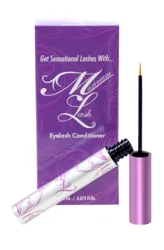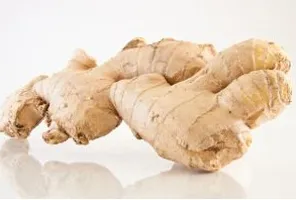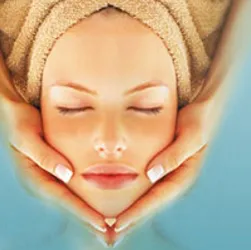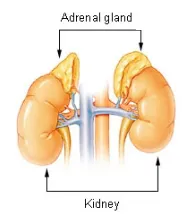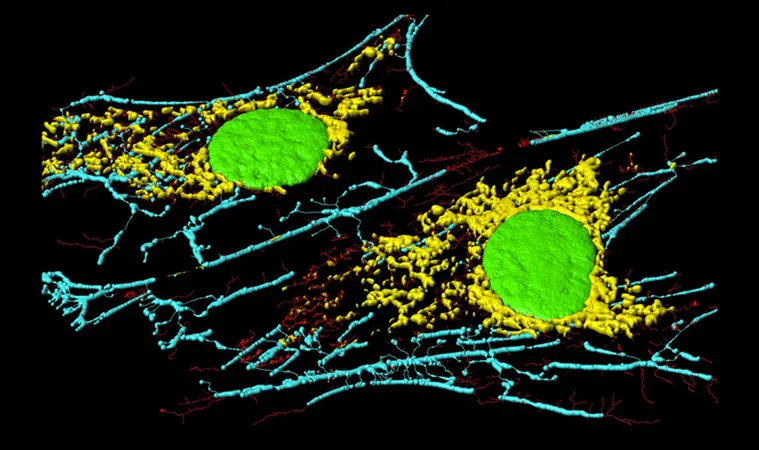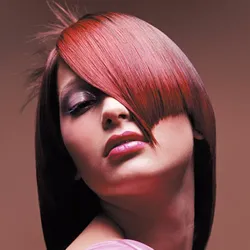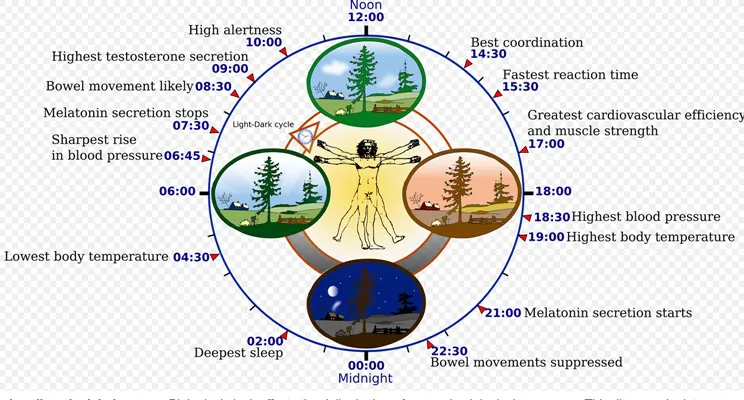Introduction
 |
|
PureOlogy
|
|
PureOlogy All Rights Reserved
|
In our incredibly busy world many of us look for instant gratification when it comes to achieving any goals such as weight loss or growing hair.
Amping up on hair vitamins, even a very carefully designed hair growth supplement program like HairTopia will not help unless all factors involving successful hair growth are addressed.
Yes, a great hair growth supplement program like Hairtopia can help max your natural growth cycle as well as improve the quality of your tresses, but to really take your hair to its absolute best growth cycle you will need to look at all the considerations.
Since the very beginning of the creation of Hairtopia, I have always warned hair consumers that the program doesn't work for everyone who takes it.
In reality, no vitamin works for everyone. The same can be true with regards to prescription pills, herbs and even headache mediations. I have friends who swear by Tylenol and others condemn it is completely ineffective.
I also constantly warn hair consumers that no hair care products work for all. I have enjoyed amazing long term results with a handful of brands including Phyto, Rene Furterer, L'Oreal, Paul Mitchell and Ken Paves. Not all of the products in each of those brands work well for me nor do they work for my friends or family.
The same thing is true about Hairtopia and all hair vitamin programs. If they claimed to work for everyone who took them, I would be suspicious.
Do We Even Need Hair Vitamins?
The answer to this question is yes. While it's generally true that most hair will grow without vitamins, it is also true that some hair will completely stop growing, will never reach its maximum length potential or will be more fragile and prone to damage. While Hairtopia can't help regrow permanently lost hair, it can help delay shedding.
In an ideal world all essential vitamins, nutrients and herbs would be naturally harvested from the food supply. Over the years the world's food supply has become significantly weakened due to a wide range of reasons.
Bottom line, to acquire all the necessary nutrients to assist with optimal hair growth and health, vitamin supplementation is essential.
Hair vitamins, along with food and any additional supplements or herbs are absorbed by the body through a highly sophisticated digestive system. All nutrient absorbed into the body, whether from hair vitamins, food or other supplements are delivered to the hair follicles by way of the capillaries.
The hair bulb which is an onion shaped growth is located at the base of the hair follicle. The hair bulb is composed of living cells. These cells divide very quickly and while pushing all new cells upwards towards the scalp.
Why Do Hair Vitamins Fail To Work For Some?
Hair vitamins, whether a comprehensive program like Hairtopia or individual supplements will be less effective or a total failure if there are pre-existing challenges preventing the hair vitamins from doing their best.
Pre-existing problems which can prevent hair vitamins from working most efficiently (or at all) include:
1. Sluggish digestive system 2. Slow circulatory system 3. Dehydration 4. Poor nutrition
Methods For Improving Circulation
The key to maximized hair growth is a flourishing circulatory system. If there are known circulatory system challenges, hair may not flourish, even with the addition of hair vitamins. It is important to pump up the body's blood flow to the hair follicles to deliver concentrated nutrients to the hair bulb.
Some methods for improving circulation include:
1. Consumption of Ginkgo biloba, known to increase blood flow in a beneficial manner 2. Abstinence from coffee, tea, chocolate or other forms of caffeine which can constrict blood flow 3. Weekly or bi-weekly massage to encourage blood flow and circulation 4. Daily meditation to reduce stress and increase blood flow to the surface of the skin 5. Yoga or other forms of exercise 6. Avoiding extremes of temperature which can alter circulation 7. Keep body warm at all times as cold temperatures will constrict blood vessels 8. Consumption of niacin which can increase circulation
To assist the success rate of a hair vitamin program taking additional supplements to crank up the body's circulation might include the following additional items:
Q10 - Ubiquinon
This is a fat-soluble, vitamin-like co-enzyme proven to increase tissue oxygenation and thus ultimately improving scalp circulation. Q10 is present in the majority of human cells except the red blood cells and cells without mitochondria. It is responsible for producing the body's energy. This is a heart healthy supplement. Q10 is made naturally by the human body. Recommended daily intake is 30 mg. Doses of over 200 mg can result in possible headache, nausea and stomach pains.
Essential Fatty Acids
Essential fatty acids play an important role in the life and death of cardiac cells. The cell membrane that protects the cells sensitive inside is built on fatty acids. Both essential oils are known to nourish straw-like hair and keep hair soft and shiny. It is also essential for healthy skin and nails with the same effect on nails as on hair and helping your skin glow, clearing up eczema and minimizing fine wrinkles.
For your general health it reduces cholesterol and helps your metabolism work more efficiently.
Omega-3 Fatty Acid (Alpha-Linolenic Acid) Omega-6 Fatty Acid (Gamma-Linolenic Acid) The difference between the omega 3, omega 6 and omega 9 fatty acids are on the molecular level. The number simply refers to what number the molecular double binding bound to the carbon atom is from the end of the molecule.
Fats from each of these families are essential, as the body can convert one omega-3 to another omega-3, for example, but cannot create an omega-3 molecule from scratch. Unlike Omega 3and Omega 6 fatty acids, Omega 9 fatty acids are not classed as essential fatty acid.
Methods For Improving Digestive System
Also essential is a well functioning digestive system to absorb the vitamins, nutrients and herbs taken into the body. Hair vitamins may be less successful when taken by anyone with known digestive or stomach problems.
When the digestion is improved the absorption of hair vitamins or other supplements will be maximized. Consider taking digestive aids or utilizing acidophilus tablets. Other options include supplementation with all natural organic yogurt which contains beneficial bacteria for digestion. Aloe vera juice or tablets will also assist in stomach function as will
Other challenges to achieving maximum success with hair vitamins include the following:
1. Sleep deprivation 2. Dehydration 3. Lack of daily exercise 4. Imbalance of necessary fiber 5. Sluggish elimination system 6. Excessive alcohol consumption 7. High levels of stress 8. Daily smoking habits 9. High levels of daily caffeine consumption
Maintaining Optimum Body Health For Maximum Hair Growth
Importance of Antioxidants
One of the primary causes of physical illness are linked to the existence of free radicals in the body. If free radicals are rampant, hair vitamins will be required to work much harder to achieve desired results.
For healthy cellular division, growth and maintenance, free radicals must be neutralized and controlled. A wide range of antioxidant compounds are available to control free radicals. When free radicals are not controlled successfully this can lead to oxidative stress and the damage and/or death of cells. Antioxidants are important for assisting the body in building up a natural resistance to UV rays, protecting from stress and burns. It also helps protect hair from environmental damage.
Correct Vitamin Dosages?
Recommended doses will always vary from person to person and from male to female. Many experts differ on what is believed to be the right dosage.
There are two basic types of vitamins:
Fat Soluble - These are stored in the body's fat cells Water Soluble - The body absorbs what it needs and eliminates the excess through urine.
Vitamin overdoses would be most likely to occur with fat soluble vitamins, although this is a rare occurance.
It is rare for any problems to occur with water soluble vitamins unless you suffer from kidney challenges.
Supplementing Your Existing Hair Vitamin Program
The Hairtopia program was developed to combine the most significant vitamins, minerals, amino acids and herbals to assist in healthy hair growth and development. There are always room for the addition of more supplements but this has to be decided on an individual preference level.
Lots of vitamins and minerals influence hair growth and hair health, both directly and indirectly. That’s why the first and most important thing you need in a supplement routine is to get a good multivitamin. In my opinion, this is what you should spend most money and energy on. Find a high quality brand you trust
You must ask yourself how many pills you want to take and how much money you want to spend on it. A multi vitamin and something targeting hair, skin and nails would be a good place to start. Some basic knowledge about the body and vitamins is necessary, but always go with your gut instinct. If you get a bad feeling from a supplement you’re taking, always listen to your body
| Chromium Trivalent chromium (Cr3+) is part of the production of insulin which helps prevent hyperglycemia and hypoglycemia, both of which can cause hair loss. In the United States the dietary guidelines for daily chromium uptake were lowered from 50-200 mcg for an adult to 35 mcg (adult male) and to 25 mcg (adult female) due to recent studies showing chromosome damage in hamster cells Warnings: People who are allergic to yeast should not take chromium supplements. Magnesium This mineral work together with calcium to ensure healthy hair growth. It is important for your general health, aids in building bone, and healthy peristalsis. Magnesium ions are essential to all living cells, and are the 11th most abundant element by mass in the human body. It’s a co-factor in over 300 different enzymes and as such an important part of the metabolism. Magnesium is a vital component of a healthy human diet and deficiency has been implicated in a number of diseases Recommended daily intake of magnesium is 280 mg. MSM (methyl-sulfonyl-methane) MSM is promoted as a natural source of sulphur by the supplement and health food industry, suggesting that people are deficient in sulphur intake. However, protein in the diet is an abundant source of sulphur, which is contained in the amino acids methionine and cysteine. The efficacy of MSM has been questioned and clinical research on the medical use of the chemical is limited to a few pilot studies that have suggested beneficial effects. The biochemical effects of supplemental methylsulfonylmethane are poorly understood. Some researchers have suggested that MSM has anti-inflammatory effects. The published clinical trials of MSM did not report any serious side-effects of treatment, but there are no peer-reviewed data on the effects of long-term use in humans People on longhair forums have reported that it helps to decrease hair fall out. It is claimed that MSM does this by making the growth stage of the hair longer and the shedding cycle shorter. The growth faze is genetically determined though but it is possible that it makes the shedding cycle shorter. It is true that sulphur is a main component in hair's structure so taking it as a supplement can’t hurt. You may take up to 2000mg/day. Warnings: Some people have linked MSM to depression! You should be aware of this when taking this supplement. Potassium Regulates circulation and promotes healthy hair growth. Potassium is a nutrient necessary for human life and health, its important for brain and nerve function. Potassium is also important in allowing muscle contraction and the sending of all nerve impulses through action potentials. Recommended daily intake: 4000 mg. Warnings: Individuals suffering from kidney diseases may suffer adverse health effects from consuming large quantities of dietary potassium Protein Hair’s structure consists primarily of protein, which remains forever critical to hair growth. Especially the protein cysteine is important for hair growth. Protein is composed of amino acids that are the body's structural materials for muscles, skin, hair etc. The body requires amino acids to produce new body protein) and to repair damaged proteins. Your body can’t store a lot of protein, meaning that you can’t fill up on protein one day and then let your body “feed off” the protein the next. A steady intake of protein is best for your hair and general health. Take a critical look at your protein intake, there are many online sources to help you with this. If your intake is around what your body needs there are no reason to take protein supplements. Some protein shakes can be very high in calories. Even if you’re not calorie conscious, there’s no reason to pile extra calories on, especially if it don’t actually helps you accomplish anything when it comes to hair growth. Proteins can be converted into carbohydrates and thus, extra protein will end as energy for the cells instead Recommended daily intake: You need 1 gram of protein per 1 kilo of body weight per day if you are healthy and up to 1,5 gram in cases of severe illness Silica This is generally a good help for growing out hair. It increases the shine and softness of the hair and helps growing the hair out stronger. It is also has antioxidant properties Sulphur Is a part in three essential amino acids and many proteins and cofactors for skin, hair, nails, liver, and pancreas health. Sulphur is an essential component of all living cells. Many important cellular enzymes use prosthetic groups ending with -SH moieties to handle reactions. Disulfide bonds (S-S shaped bonds) formed between cysteine residues in peptide chains are very important in protein assembly and structure. These strong covalent bonds between peptide chains give proteins a great deal of extra toughness and resiliency. For example, the high strength of feathers and hair is in part due to their high content of S-S bonds and their high content of cysteine and sulphur. In short: Sulphur is a main component to hair's structure. Vitamin B1 (Thiamin or thiamine, also known as aneurine hydrochloride) A funny note on vitamins B’s is that many of the following substances have been referred to as vitamins because they were believed to be vitamins at one time, and they are relevant to vitamin nomenclature in that the numbers that were assigned to them form "gaps" in the series of B-vitamin names. Some of them, though not essential to humans, are essential in the diets of other organisms; others have no known nutritional value. There are named around 30 different vitamin B’s! Vitamin B1 is a water soluble vitamin that is important for the processes that make glucose which is fuel for the body’s cells. The majority of the vitamin in serum is bound to proteins, mainly albumin. Approximately 90% of total thiamin in blood is in erythrocytes. A specific binding protein called thiamin-binding protein (TBP) has been identified in rat serum and is believed to be a hormonally regulated carrier protein that is important for tissue distribution of thiamine. The vitamin B1 molecule is sensitive and is broken down by high temperatures in cooking, coffee and alcohol. Recommended daily intake in most countries is set to around 1,4 mg Vitamin B2 (Riboflavin) This Vitamin is needed for the proper biochemical functioning of every living cell. It is important for healthy skin especially on the lips. Riboflavin aids the body in the absorption of iron. Like the other B vitamins, it plays a key role in energy metabolism, and is required for the metabolism of fats, ketone bodies, carbohydrates, and proteins. As such, vitamin B2 is required for a wide variety of cellular processes. Riboflavin is water soluble and is continuously excreted in the urine of healthy individuals, making deficiency relatively common when dietary intake is insufficient. However, riboflavin deficiency is always accompanied by deficiency of other vitamins The recommended daily intake in most countries is set at around 1,5 mg Warnings: Taking nerve medicine in the form of Klorpromazin makes the body flush this vitamin twice as fast as normal through the urine Vitamin B3 (Niacin, also known as nicotinic acid) This water soluble, non essential vitamin is needed for oxygen transport to the cells and promotes healthy scalp circulation. Also takes part in fat, protein and carbohydrate metabolism and helps the nervous system function The body can synthesize niacin from the amino acid tryptophan if the body’s requirement isn’t met through food Recommended daily intake in most countries is set at around 15 mg Warnings: Taking more than 1 g a day can result in "niacin flush" - a temporary heat sensation and blushing due to blood cell dilation. High doses should be avoided by pregnant women as it can result in deformations on the foetus. High-dose niacin may also elevate blood sugar Vitamin B4 (Adenine) In older literature, adenine was sometimes called Vitamin B4 but it is no longer considered a true vitamin or part of the Vitamin B complex because it is synthesized by the human body. However, two B vitamins, niacin and riboflavin, bind with adenine to form two cofactors that are essential to the body Vitamin B6 (Pyridoxine pyridoxal and pyridoxamin) This water soluble vitamin prevents hair loss and is part of the process that creates melanin, which gives hair its colour. Vitamin B6 is a factor in more than 140 enzyme activities, corresponding to ~4% of all classified activities in the body The vitamin B6 molecule is sensitive and is broken down by high temperatures in cooking, coffee, oestrogen and alcohol. Recommended daily intake for a grown person is around 1,3 mg. Warnings: High doses can cause numbness in hands and feet and trouble coordinating the limbs. Medicine against Parkinson’s disease can hinder the body’s absorption of this vitamin Vitamin B7 (Biotin, also known as vitamin H) Vitamin B7 is essential in the production of keratin and may prevent greying and even hair loss in men. It promotes healthy hair growth since it increases the elasticity of the hair's cortex, thus preventing breakage and protects against dryness. Biotin is necessary for all cell growth, the production of fatty acids, and the metabolism of fats and amino acids. Biotin supplements are often recommended as a supplement to stop hair loss, there are, however, no studies that show any benefit in any case where the subject is not actually biotin deficient. Deficiency is extremely rare, as intestinal bacteria generally produce an excess of the body's daily requirement. For that reason, statutory agencies in many countries don’t prescribe a recommended daily intake for this water sioluble vitamin. The vitamin promotes cell growth and is thus needed for healthy skin as well. Recommended daily intakeis no higher than 225 mcg Vitamin B8 (Denosine monophosphate or inositol) Inositol is no longer classified as a vitamin because it is synthesized by the human body. It keeps hair follicles healthy at the cellular level and is thus necessary for hair growth. Vitamin B9 (Folic acid, vitamin M and folate) Vitamin B9 is necessary for the production and maintenance of cells. It’s an important part of the development and tissue growth as the cells need it for dividing. This also makes it an important part of red blood cell growth. It is also necessary for the repair of damaged cells. This is especially important during periods of rapid cell division and growth such as infancy and pregnancy. Recommended daily intake of vitamin B9 is 0,3 mg. Warnings: Even though its a water-soluble vitamin, intake of supplemental folic acid should not exceed 1000 micrograms. In supplement form the molecule breaks down when exposed to water, light and heat Vitamin B12 (Cyano cobalamin) This water soluble vitamin is required for the proper functioning of all cells because it’s necessary for the dividing process. Vitamin B12 is involved in the metabolism of every cell of the body, especially affecting the DNA synthesis and regulation but also fatty acid synthesis and energy production. It is needed for new tissue growth, red blood cells, nervous system and skin. It prevents hair loss by keeping the bulb dividing cells to produce hair. Recommended daily intake for an adult is 2-3 mcg .The body recycles the vitamin and the coli bacterium that lives in the colon produces the vitamin so the intake required is low. Vitamin D Vitamin D is a fat soluble vitamin with a half-life at almost a month in the body. When skin comes in contact with the UVB rays in sunlight the body synthesize the vitamin. It increases the absorption of calcium and promotes bone formation and mineralization and is essential in the development of an intact and strong skeleton. Vitamin D regulates the calcium and phosphorus levels in the blood by promoting their absorption from food in the intestines, and by promoting re-absorption of calcium in the kidneys. It also plays a role in regulating the immune system. Recommended daily intake: 5-10 mcg The exact long-term safe dose of vitamin D is not entirely known, but dosages up to 250 micrograms per day for healthy adults are believed to be safe. Overdose occurs at more than 100 times the recommended daily dose of over a period of months. Acute overdose requires over ten thousand times the RDA. Foods contain low levels, and have not been known to cause overdose. Vitamin E Vitamin E is the collective name for a set of 8 related tocopherols and tocotrienols, which are fat-soluble vitamins with antioxidant properties. Vitamin E increases oxygen uptake, which improves circulation to the scalp and skin. Since hair health is tied to the immune health, vitamin E is believed to stimulate hair growth by enhancing the immune function. Vitamin E also has shown to have beneficial effects on the lungs and heart and on aging in general. It has been claimed that α-tocopherol is the most important lipid-soluble antioxidant, and that it protects cell membranes from oxidation Recommended daily intake is around 10 mg. Because vitamin E can act as an anticoagulant and may increase the risk of bleeding problems, many agencies have set an upper tolerable intake level for vitamin E at 1,000 mg. Warnings: Can raise blood pressure and people taking high blood pressure medication or anticoagulants should check with their doctors before taking Vitamin E supplements. Vitamin K This is a group of fat-soluble vitamins that are needed for the building and modification of certain proteins, mostly required for the factors leading to a successful blood coagulation. The human body does not store Vitamin K in large quantities, so the body requires a daily intake of Vitamin K. Bacteria in the colon excretes vitamin K that is absorbed by the body. Recommended daily intake of Vitamin K for an adult is set to120 mcg for both genders. No tolerable upper intake level has been set, but too high intake may result in increased risk of bleeding Building your own supplement routine Basic fibre, four tablets Fibres 1,7 g Dietary fibre consists mainly of cellulose, a large carbohydrate polymer that is indigestible because humans do not have enzymes to digest it. This might be TMI, but my stomach has always been kind of slow no matter what or how I eat and these fibre tablets make me generally a lot happier with myself Bio lignisul MSM, two tablets MSM 1000 mg I am currently running a 3 months experiment to see if MSM will have any effect on my shedding or not. Some people have experienced less hair loss taking this, so I figured it was worth a try. Even though the sources I have found haven’t been positive on its effect. I’m keeping an eye on side effects and will stop the experiment if any problems or changes in my mood occur. Futura silica, three tablets Brewers yeast 300 mg Horsetail 300 mg Sea weed flour 300 mg This is a Danish brand silica supplement. I have tried several and this one is simply the best for me. It seems to be rather unrefined compared to other silica supplements on the market. This is part of my core supplement routine. This has made a huge impact on my nails. Before I started taking supplements I had the most pitifully weak, bendy and peeling nails. They were literally almost fallen apart before they got to the white part! My friends even used to joke that my hair stole all the nutrition away from them. After around a year of taking this silica supplement I was able to grow them strong and longer than I find comfortable G-energi, one pill Ginkgo Biloba 50 mg Ginseng 400 mg Guarana extract 300 mg I used to take energy and antioxidants in two separate pills until I found this one Hemojern, one pill Iron 9 mg For some reason my otherwise wonderful multivitamin doesn’t cover my iron requirement, so I’m taking a iron supplement separately Priorin, one tablet L-cystin 2 mg Millet extract 140 mg Vitamin B5 9 mg Wheat germ oil 271 mg I stumbled across this supplement when I was looking around at a health food store and liked what it contains. L-cystin is the amino acid that is specifically targeted hair growth and millet and wheat germ is high in essential fatty acids. Protabs protein, four tablets Protein 2 g Unikalk, one tablet Calcium 400 mg For some reason my otherwise wonderful multivitamin doesn’t cover my calcium requirement, so I’m taking this supplement separately Minerals: Calcium: 600 mg Chrome: 125 mcg Copper: 2 mg Iodine: 225 mcg Iron: 5 mg Magnesium: 400 mg Manganese: 5 mg Molybdenum: 250 mcg Selenium: 125 mcg Zinc: 22,5 mg Herbs: Cats claw 40 mg Elder 180 mg Ginger 100 mg Ginseng 60 mg Green alge 150 mg Green tea 60 mg Hip 80 mg My intake in all Brewers yeast 300 mg Calcium: 1000 mg Cats claw 40 mg Chrome: 125 mcg Copper: 2 mg Elder 180 mg Fibre 1,7 g Fish oil 600 mg Ginger 100 mg Ginkgo biloba 50 mg Ginseng 400 mg Green alge 150 mg Green tea extract 400 mg Guarana extract 300 mg Hip 80 mg Horsetail 300 mg Iodine: 225 mcg Iron: 14 mg Magnesium: 400 mg Manganese: 5 mg Millet extract 140 mg Molybdenum: 250 mcg MSM 1000 mg Protein 3,4g Sea weed flour 300 mg Selenium: 125 mcg Vitamin A: 1500 mcg Vitamin B1: 17,25 mg Vitamin B2: 18,6 mg Vitamin B3: 78 mg Vitamin B5: 51 mg Vitamin B6: 8,5 mg Vitamin B7: 225 mcg Vitamin B9: 600 mcg Vitamin B12: 18 mcg Vitamin C: 90 mg Vitamin D: 10 mcg Vitamin E: 41 mg Vitamin K: 150 mcg Zinc: 22,5 mg Wheat germ oil 271 mg |
|
|





